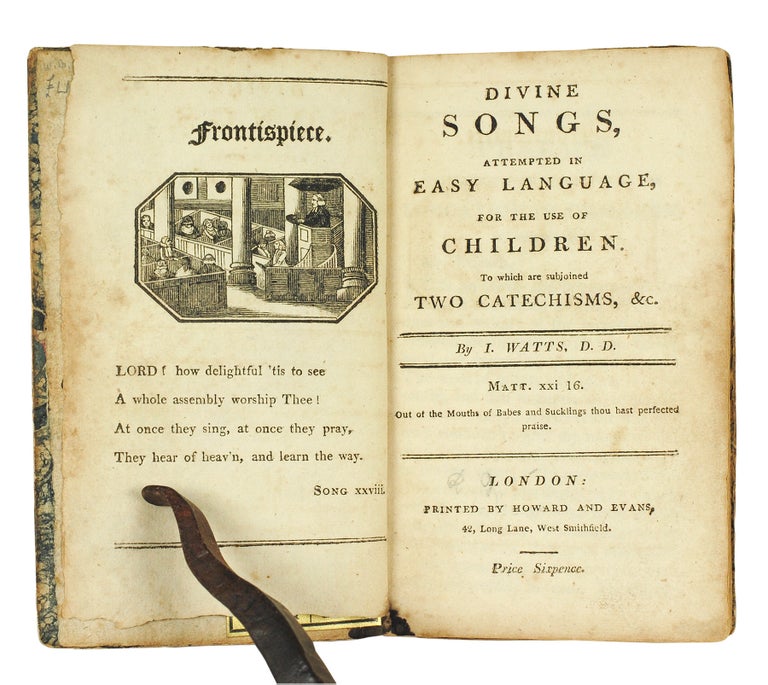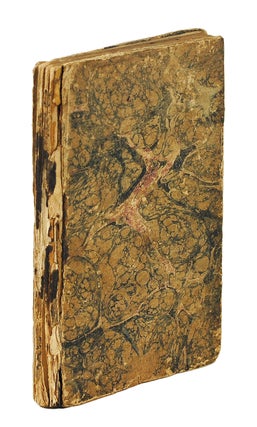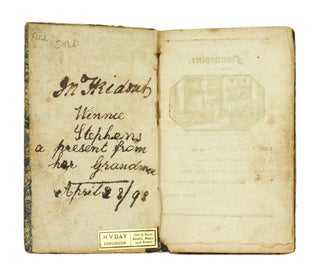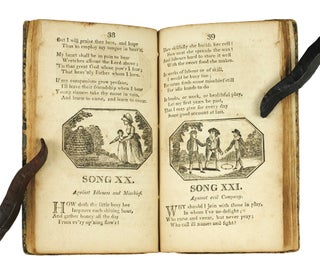Divine Songs, attempted in Easy Language, for the Use of Children. To which are subjoined, Two Catechisms, &c.
1800. London: Howard and Evans, [c. 1800].
12mo, 79pp. With a woodcut frontispiece and 39 small woodcuts in the text. Original marbled wrapers, backstrip perished, internally very good. Ink inscription "Winnie Stephens a present from her Grandmother April 28/'98" below an illegible earlier ink signature.
§ “First published in 1715, Watts’s Divine Songs is listed with Defoe’s Robinson Crusoe and Swift’s Gulliver’s Travels by Darton as three books appearing in the first forty years of the eighteenth century that had a profound influence on children’s literature. [only) Watts’s book was written expressly for children... For a century these verses were extremely popular.” Johnson, The Elisabeth Ball Collection, #3.
Oyens and Alderson “Be Merry and Wise”, and Gottlieb "Early Children's Books" both note the Morgan Library copy of the first edition [1715) of which only a few copies are known to exist. It is important to recall Watts’s influence on William Blake; see the essay by Pinto on Blake, Watts, and Barbauld in V. de Sola Pinto, ed., The Divine Vision, 1957, as well as Essick's numerous references to Watts in the edition of Blake's "Songs" issued by The Huntington Library. Also, Song XX [in this version) is the famous “How doth the little busy bee” which inspired Lewis Carroll’s “How doth the little crocodile” in “Alice in Wonderland”. Item #125129
Price: $250.00





